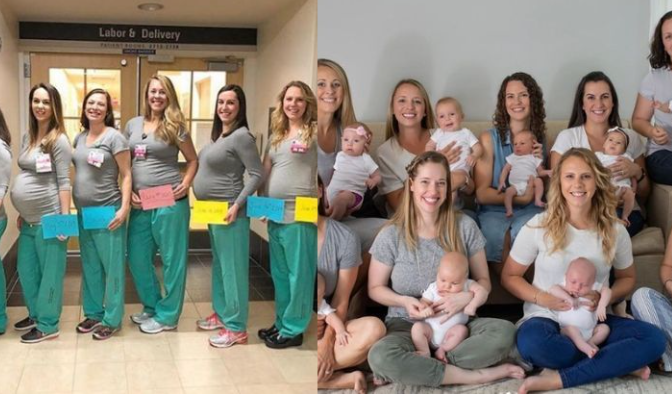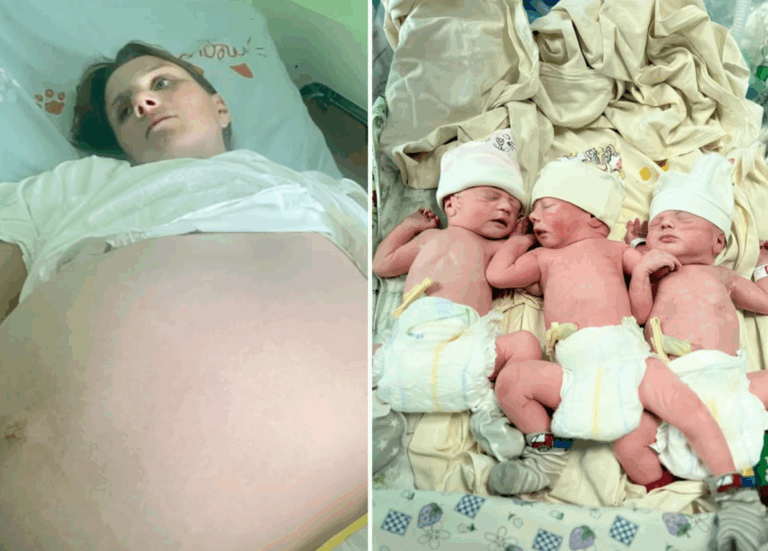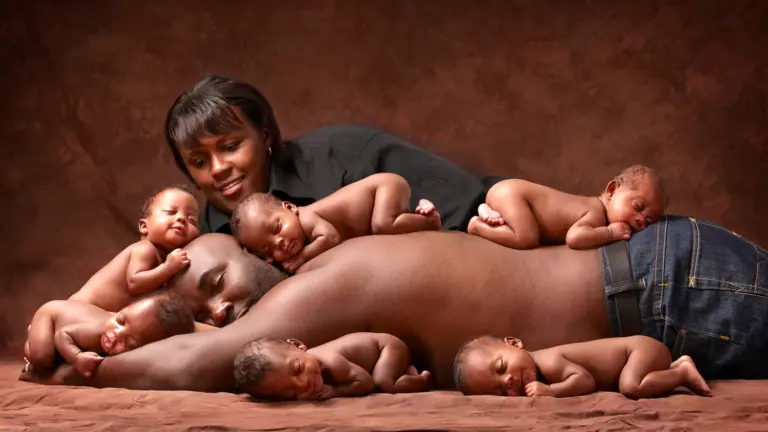He carried more than pens that day. He carried hope, love, and the weight of a father’s promise.
The streets of Beirut were hot that afternoon — heavy with the smell of dust and exhaust, crowded with people who were always in a hurry.
Amid the noise and motion, a man stood quietly at a street corner. His clothes were worn, his face lined with exhaustion, his eyes dim but determined.
In one hand, he clutched a handful of blue pens.
In the other, he held his sleeping daughter.
Her small arms were wrapped around his neck, her cheek resting against his shoulder — a picture of peace in the middle of chaos.
That man was Abdul Halim al-Attar, a Syrian refugee, and that moment — captured by a stranger’s camera — would soon travel across the world and change his life forever.
The Father Who Wouldn’t Give Up
Before the war, Abdul had been an ordinary man living in Syria — a factory worker, a husband, a father. He never imagined his home would one day become rubble, or that survival would mean starting again in a foreign land.
When the civil war broke out, everything he knew collapsed in a matter of months. He fled the violence with his two young children, leaving behind the life he’d built and the place he’d loved.
In Beirut, Lebanon, he found himself among thousands of refugees — displaced, forgotten, invisible.
He had no work permit, no savings, and no safety net. But he had one thing left — his children.
And that, he decided, was enough reason to keep going.
The Day Everything Changed
Every morning, Abdul walked the streets of Beirut selling pens. They were cheap plastic pens — the kind most people wouldn’t even glance at — but to him, they were hope.
He would weave through traffic, approaching cars with his quiet plea, while his little daughter, Reem, slept in his arms. Her hair was tangled from the heat, her dress faded from wear, but her tiny hand clung to her father’s shirt as if she knew he was her entire world.
One day in 2015, a passerby noticed him — a photojournalist named Gissur Simonarson, who lived in Norway. Something about that image struck him deeply: the man’s exhaustion, the child’s innocence, and the silent love that bound them together.
Without thinking twice, he took a photo.
The picture showed Abdul standing in the middle of the street — sweat on his brow, his daughter asleep against his shoulder, a handful of pens extended toward strangers.
He didn’t know it then, but that single photograph would travel farther than he could ever walk.
The Power of a Photo
When the image hit the internet, it spread like wildfire.
People across the world began sharing it — first in Lebanon, then across the Middle East, and soon everywhere. The man’s face became a symbol: a father’s love in the face of desperation, a reminder of the human cost of war.
But the world didn’t just look — it acted.
Moved by the photo, Simonarson launched an online crowdfunding campaign to help Abdul and his family. He set a modest goal of $5,000.
Within days, donations poured in from over 7,000 people across 90 countries.
By the time the campaign closed, the total had reached $190,000.
From Street Corner to Second Chances
When Abdul first heard the news, he didn’t believe it.
“I thought it was a mistake,” he said later. “I didn’t think people would care about someone like me.”
But they did. And with their help, he rebuilt everything from the ground up.
He opened a small bakery in Beirut, selling Syrian sweets and pastries. Then he started a kebab shop, and later, a small restaurant employing other Syrian refugees who, like him, had lost everything.
The man who once sold pens on the street was now creating jobs for others.
His children were finally able to go to school — something he had once only dreamed of.
For the first time in years, he could watch them eat full meals, sleep safely, and smile without fear.
The Man Behind the Viral Photo
When journalists later visited Abdul’s bakery, they found a man transformed. His hands were no longer holding pens, but kneading dough. His daughter Reem, once the sleeping child in his arms, now ran around the shop, giggling between tables.
But even with his new success, Abdul remained humble.
“I don’t want to be famous,” he said. “I just want to be able to give my children a good life.”
He used part of the money not just for his own family, but to help other refugees — including relatives still trapped in Syria.
He hired fellow Syrians, giving them wages and dignity. He even donated food to families who couldn’t afford it.
The man who had once depended on the kindness of strangers was now spreading that same kindness forward.
A Father’s Promise
There’s a quiet power in the photo that started it all.
If you look closely, you can see the exhaustion in Abdul’s eyes — but also the strength. You can see the fragility of his daughter, her head resting against him, trusting completely that her father will keep her safe.
That’s the essence of parenthood — the silent vow to protect, even when the world collapses around you.
Abdul didn’t have a home, a job, or a future when that picture was taken. But he had a purpose.
And sometimes, that’s all it takes to move mountains.
From Struggle to Symbol
Abdul Halim al-Attar’s story became more than just a story about one man. It became a mirror for millions — refugees, parents, and ordinary people who fight their own unseen battles every day.
His image showed that dignity doesn’t disappear in hardship — it endures. That love doesn’t fade with poverty — it deepens.
And that compassion — even from strangers halfway across the world — can rebuild a life that once seemed lost.
Years later, Abdul still keeps a handful of pens in his shop — not to sell, but as a reminder.
“They changed my life,” he says with a smile.
Each pen represents a day he refused to give up. Each one carries the memory of hunger, of resilience, of a father’s love too fierce to be broken.
When asked what he hopes others take from his story, he doesn’t talk about money or fame. He talks about empathy.
“When you see someone struggling, don’t just look away,” he says. “Sometimes, one small act of kindness can change everything.”





